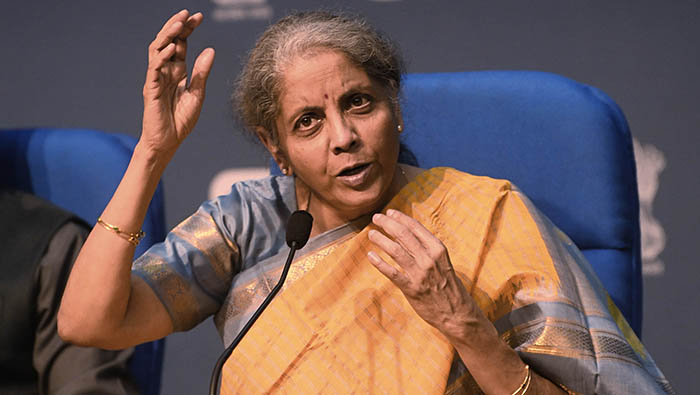
Muscat: Non-resident Indians (NRIs) will be able to set up one-person companies back home soon, following the proposal by Union Minister for Finance and Corporate Affairs to incentivise their incorporation into the Indian economy.
Sitharaman was speaking while presenting the Union Budget 2021 on Monday.
The incorporation of OPCs in India will help the NRIs to enter the domestic market, and will also provide them a livelihood once they return home.
Announcing the scheme, the finance minister said, “Incorporation of OPCs will be incentivised by allowing such companies to grow without restriction on paid-up capital and turnover, allowing conversion into any other type of company at any time, reducing the residency limit for an Indian citizen to set up an OPC from 182 days to 120 days, and allow also non-resident Indians to incorporate OPCs in India.”
The proposal was welcomed by Sarveshwar Biyani, the vice president of finance and accounts at SV Pittie Sohar Textiles, who said a number of concessions and legal frameworks had been designed for people looking to found one person companies in India.
“If people here have any ideas for products they think will do well in Oman, or want to get them into the Indian market, then this will be a good way to do that,” he said.
“The advantage of a one-person company is that your initial costs will not be so high, as you are the sole employee, whereas a regular company will have a lot of other costs and requirements, such as hiring a certain number of people, and more than one founder, which is compulsory in India,” he added.
“All the decisions made by this company will be yours to make, so you will not need to always consult with other co-founders, and can operate independently,” said Biyani.
“The financial decisions, manpower decisions, concerns regarding expansions, you can take them all on your own, so if you have good ideas about how to proceed, then you can move ahead with them quickly,” he explained.
“This is a laudable step and I appreciate the government’s effort to integrate NRIs,” said Dr Anchan CK, a trade advisor in Muscat. “India’s biggest asset has always been our human resources and the measures taken in these fields will surely go a long way in boosting start-ups in various fields and across all economic segments,” he further said.
Ramanuj Venkatesh, a financial analyst added, “This will bring in sustained expertise and renewed confidence among NRIs who wish to invest their hard earned money in their own country. It’s quite an important step to take, given the economic impact the COVID-19 pandemic has had on the economies of India and other countries.”
“Once you have set up this company in this manner for a couple of years, then you can expand this into a regular company and take it forward, probably once you return to India,” Biyani went on to say. “A company of this stature will also be accredited by the Indian government, so it will be easier to approach banks to get work done for it.”
Biyani added that companies of this nature were also less likely to engage in fraud, and a number of legal measures have been enacted in this context, which makes it very difficult for company owners to abscond with money.
“When you are the founder of an OPC, you are likely to be the only investor, otherwise you will need to provide decision-making and managerial power to anyone investing in your company,” he explained. “Your autonomy is then lost. On the other hand, if you put your own money into the company, you will not abscond, because no one will want to lose their own earnings.”
“When you form this kind of company, you have to follow all of the laws under the Companies Act of 2013, so the government does have many legal provisions to stop you from doing this,” added Biyani.